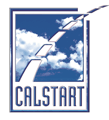CALSTART Applauds Biden Administration on First-Ever National Goal of Zero-Emission Freight Sector
Several zero-emission transition funding programs totaling $1.5 billion are now available.
Pasadena, CA – CALSTART, a global clean transportation nonprofit, is celebrating the Biden-Harris Administration for creating a first-time national goal to transition to a zero-emission freight sector for trucks, rail, aviation, and marine vehicles and continue to direct supportive investments to realize this goal. The national goal builds on the recently announced Zero-Emission Freight Strategy and aligns with President Biden’s goal of decarbonizing the energy sector by 2035 and reaching 100 percent new sales of zero-emission medium- and heavy-duty vehicles by 2040, a commitment made by signatories of the Global Memorandum of Understanding (MOU) on Zero-Emission Medium- and Heavy-Duty Vehicles.
The U.S. freight system is fundamental to the U.S. economy. However, the nation’s transportation sector is the largest source of climate pollution. As the American Lung Association’s recent State of the Air Report shows, while the transportation sector is making progress to drive down emissions, more work is needed to improve the health and well-being of residents in overburdened communities, who are exposed to harmful air pollution from diesel fumes and are susceptible to asthma, heart disease, and lung cancer as a result.
To further address the climate crisis and clean up pollution from the transportation sector, the Administration is also unveiling key steps for action, including new funding programs, to accelerate the deployment of electric vehicles and charging infrastructure. The Environmental Protection Agency (EPA) is investing nearly $1 billion in funding for cities, states, and tribes through the EPA Clean Heavy-Duty Vehicles program, created by the Inflation Reduction Act, to fund the purchase of zero-emission Class 6 and 7 heavy-duty vehicles. The funding will support infrastructure development as well as workforce development and training. Additionally, the Department of Energy (DOE) is setting aside $72 million to establish a “SuperTruck: Charged” program that will “demonstrate how vehicle-grid integration enables depots and truck stops to provide affordable, reliable charging while increasing grid resiliency,” according to The White House statement. The DOE also recently announced The East Coast Commercial ZEV Corridor Planning Project, a two-year project to develop a strategic plan for commercial zero-emission vehicle (ZEV) infrastructure deployment of ZEV refueling stations from New Jersey through Georgia along Interstate 95 (I-95). Finally, the U.S. Department of Transportation unveiled the initial set of grants from its $400 million grant program dedicated to reducing truck emissions at port facilities and the burden on communities situated nearby.
Building on the momentum of President Biden’s Investing in America agenda, the National Zero-Emission Freight Sector goal will clean up pollution in the most heavily impacted communities.
“We applaud the Biden Administration’s additional investments in the zero-emission commercial vehicle sector,” said John Boesel, President and CEO, CALSTART. “These investments, when combined with strong standards, will spur the growth of the U.S. zero-emission commercial vehicle market.”
CALSTART invites collaboration with government and industry partners to implement vehicle and infrastructure solutions to achieve this new goal and improve quality of life for our most vulnerable communities.
For more information about CALSTART, visit the website now.
About CALSTART
A mission-driven, industry organization focused on transportation decarbonization and clean air for all, CALSTART has offices in New York, Michigan, Colorado, California, Florida, and Europe. CALSTART is uniquely positioned to build the national clean transportation industry by working closely with its member companies and building on the lessons learned from the major programs it manages for the State of California. CALSTART has more than 280 member companies and manages more than $500 million in vehicle incentive and technical assistance programs in the United States.
